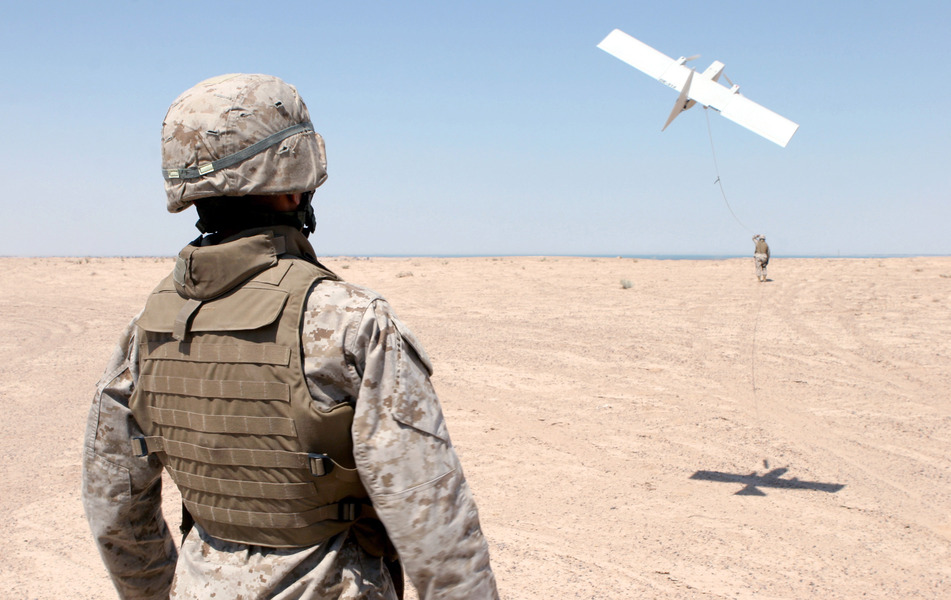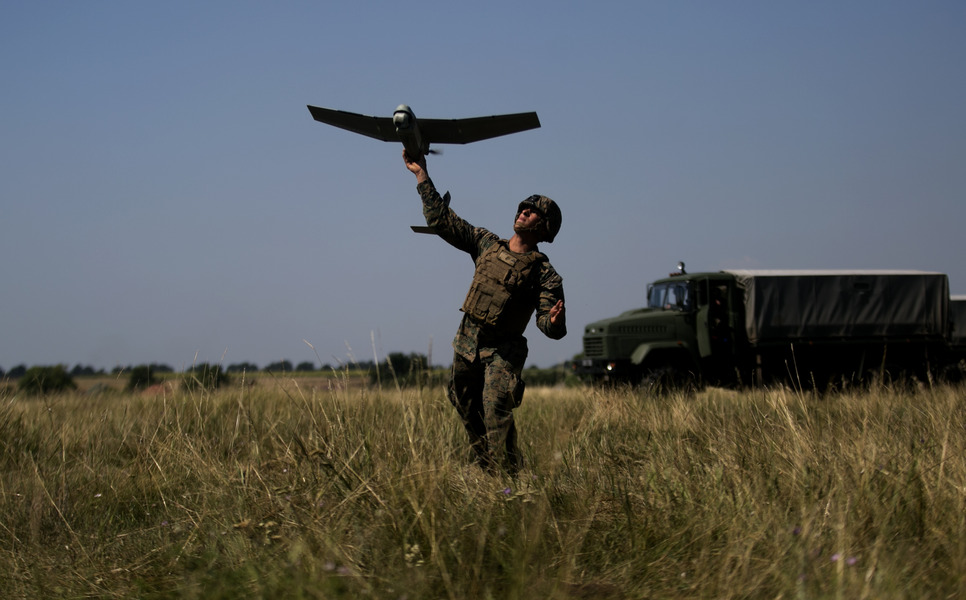The CIA, Executive Power, and International Law: Reflections on Yesterday's Speech
Published by The Lawfare Institute
in Cooperation With

Yesterday’s speech by CIA General Counsel Stephen Preston has generated criticism from Deborah Pearlstein, on Opinio Juris. I want to address a couple of the points she raises.
Deborah first addresses Preston’s comments relating to the domestic law authority of the CIA to use lethal force. I agree with her that it was noteworthy that Preston led with Article II authority, and only briefly mentioned congressional authorization as an alternative justification. And I agree as well that this is a stylistic departure from what one usually sees from Obama administration officials, who in the context of counterterrorism invariably emphasize the 9/18/01 AUMF alone. But I do not agree with her conclusions that (i) this suggests a “Bush-era understanding of Art. II” and that (ii) the CIA “[p]resumably...thinks that the [AUMF doesn’t] suffice to authorize all the uses of force the CIA has carried out under its drone program.” Let me explain why, and also share a few thoughts on the international law issue Deborah flags.
The Comparison to Bush – My concern here is that the phrase “Bush-era understanding of Art. II” could mean quite a few different things. The strongest connotation of the phrase, at least to me, is the claim that the commander-in-chief cannot be constrained by statute in the conduct of traditional military functions in war—i.e., the commander-in-chief override argument. Certainly nothing in Preston’s speech gestured anywhere near that direction; quite the contrary, in fact. Of course, Deborah does not explicitly suggest otherwise, but she does refer skeptically to the idea that Article II conveys power to the president “to detain people, interrogate them, and tap their phones so long as we’re in a state of armed conflict.” Is that an idea about which we should be skeptical, though, separate from the commander-in-chief override issue (which arose during the Bush years precisely in relation to those three categories of activity)? That is, assuming compliance with all relevant statutes rather than breach of them, is it not the case that the President does have some inherent authority to do precisely these things in the course of carrying out his commander in chief powers (not to mention his constitutional obligation to protect the nation) during an armed conflict? All that said, Deborah’s core concern remains; I take it, that is, that in the final analysis she is not so much concerned with the particulars of which war-related actions follow from a proper presidential invocation of Article II self-defense authority, but rather with the possibility that the Obama administration construes the circumstances implicating that authority in the first instance too broadly. That is indeed an important question, and she is right to draw attention to it. But I don’t think Preston’s speech provides any evidence for attributing an unduly aggressive answer to that question to the Obama administration. He was quite specific in referring to circumstances in which the United States has already been attacked by a group that is actively plotting further attacks. Sounds to me rather like the Clinton Administration using military force against al Qaeda in 1998, resting on Article II grounds, and certainly not a position that would give me heartburn on separation of power grounds. Oh, and one final thought: I just don’t think we should be surprised to know that Obama administration lawyers might contemplate an Article II argument for stand-alone authority to act in a national self-defense scenario, given that the administration was quite forward leaning, to put it mildly, in relying solely upon Article II for an armed intervention in Libya that was not a matter of national self-defense.
Using Force Beyond the AUMF – Deborah writes that “[p]resumably Preston fronts the Art. II authority in part because CIA thinks that the statutory powers on the books don’t suffice to authorize all of the uses of force the CIA has carried out under its drone program.” As an initial matter, I don’t that that presumption is warranted by the speech. One might choose to frontload the Article II claim simply to make the point—the legally correct point—that obtaining an AUMF is not the only constitutionally valid way in which to domestically justify the use of force. That would be worth saying regardless of whether current operations depend on that rationale, since non-AUMF situations might arise in the future just as they did in the past (see reference above to Clinton attacking al Qaeda in 1998), and one might conclude that it is unwise for the executive branch to grow too accustomed to exclusively referring to the 9/18/01 AUMF in the meantime (executive branch lawyers tending to be mindful of desuetude concerns when it comes to presidential authority). Now, having said that, what about Deborah’s claim that CIA operations as reported in the media seem to be difficult to square with the AUMF? I don’t agree. The media reports that these operations take place in two places. First, Pakistan (FATA). I think it is relatively easy to explain those operations in AUMF terms. Second, Yemen. These operations target AQAP, which is certainly a more complicated inquiry under the AUMF, but by no means impossible. I’ve written in some detail about the al Qaeda-AQAP relationship, and think it quite reasonable to construe the AUMF to apply to it. And if AQAP is not sufficiently related to al Qaeda to come within the AUMF? Well, then one might ask what is wrong with invoking Article II self-defense authority as a fall-back given the repeated attempts by AQAP to carry out attacks against the United States. It seems quite akin, once more, to the Clinton Administration’s approach to al Qaeda in 1998. Now you’ll notice I’ve not mentioned Somalia and al Shabaab, though Deborah gives that example. My understanding of the public record is that US uses of force in Somalia are carried out by JSOC, not the CIA. But set that aside. The public record also suggests that the US uses lethal force in Somalia more selectively than in Yemen, and there is reason to believe that in the past these uses of force have been specifically focused on the narrow subset of al Shabaab members who have specific personal ties to al Qaeda. The story is greatly complicated by the fact that more than a few actual al Qaeda members over time have played leadership roles in the organization or have found shelter with it, and by the fact that there appears to be an ongoing struggle among the group’s leaders as to whether to formally join the al Qaeda network (culminating most recently in a joint video with an al Shabaab leader and no less than Ayman al Zawahiri himself celebrating al Shabaab’s purported decision to take that step). In sum, then, I don’t see strong evidence of current extra-AUMF activity lurking between the lines of Preston’s speech.
What about international law? The question whether the CIA perceives an obligation to comply with international law of any variety when acting under Title 50 is a very interesting and important one. Famously, 50 USC 413b(a)(5) requires that a presidential finding authorizing covert action “may not authorize any action that would violate the Constitution or any statute of the United States.” It does not mention treaties or customary international law, conspicuously, and there has been a huge amount of speculation over time as to whether the CIA takes that omission literally or not. Preston’s speech is a very interesting read in this regard, providing some indirect evidence for the covert-action-is-not-bound view...which is perhaps most accurately described as the view that § 413b(a)(5) authorizes the executive branch to put the United States as a whole in breach of international law, if it so desires, via covert action. That said, it is not at all obvious from the text of the speech that this is indeed the government’s position on the impact of Title 50.
Robert (Bobby) Chesney is the Dean of the University of Texas School of Law, where he also holds the James A. Baker III Chair in the Rule of Law and World Affairs at UT. He is known internationally for his scholarship relating both to cybersecurity and national security. He is a co-founder of Lawfare, the nation’s leading online source for analysis of national security legal issues, and he co-hosts the popular show The National Security Law Podcast.




.jpg?sfvrsn=118b03e5_5)
